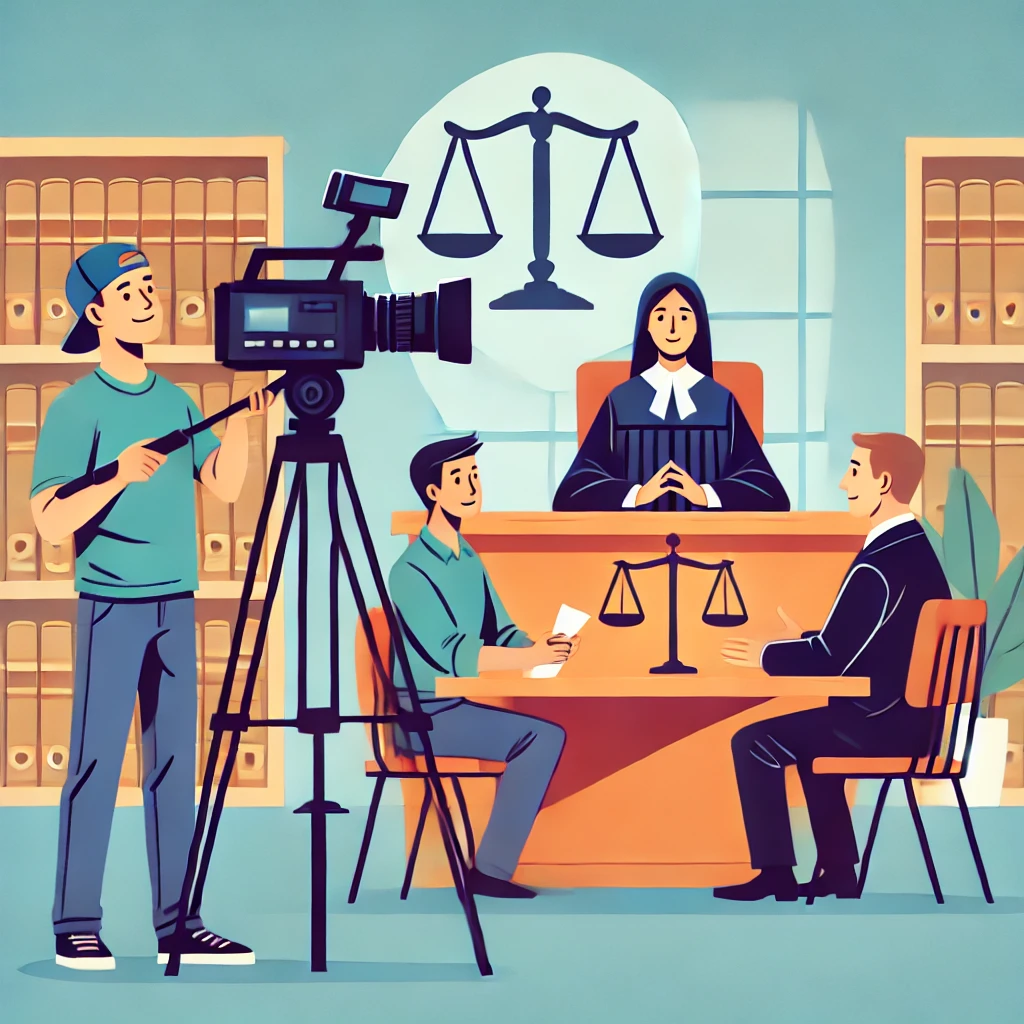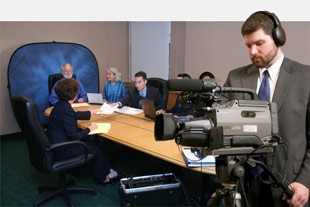Full-Service Legal Videography for Documenting Legal Proceedings.
Full-Service Legal Videography for Documenting Legal Proceedings.
Blog Article
The Duty of Legal Videography in Depositions and Trials
Legal videography has actually become a crucial device in both depositions and trials, giving a diverse strategy to recording witness testaments. By recording not only the spoken word yet likewise the subtleties of non-verbal communication, this medium improves the reliability of statements and maintains critical evidence for future process. As lawyers increasingly recognize its value, it motivates a deeper exam of just how these visual records can affect juror assumptions and test results. What ramifications might these growths hold for the future of legal method?
Significance of Lawful Videography
Lawful videography plays a pivotal function in the documentation and presentation of depositions and trials. This specialized field incorporates technical skills with legal knowledge to produce a reliable record of process that can dramatically influence situation end results. The visual aspect of legal videography enhances the understanding of witness testament, allowing jurors and courts to observe not just the talked words but also the behavior, feelings, and body movement of the witnesses.

The significance of legal videography expands past the court; it also plays an essential function in protecting evidence for future reference, whether for charms or additional lawful action. Therefore, its combination right into the legal process is important for ensuring a fair and precise representation of the facts, inevitably contributing to the search of justice.

Process of Legal Videography
While capturing the nuances of depositions and tests, the procedure of lawful videography includes numerous crucial steps that make sure top quality, accurate recordings. An expert legal videographer prepares by assessing the situation materials and understanding the specific needs of the deposition or test. This preparation includes familiarizing themselves with the individuals and the context, which aids in capturing pertinent information.
On the day of the recording, the videographer establishes up the necessary devices, which normally consists of high-def electronic cameras, microphones, and correct lights. Making certain optimum angles and sound high quality is important, as it directly impacts the efficiency of the recording. The videographer interacts with attorneys and individuals to establish protocols, making sure that everybody comprehends the recording process.
Throughout the deposition or test, the videographer meticulously records the process, paying attention to both verbal and non-verbal signs. legal videography. This includes capturing the temperament and reactions of witnesses and lawyers. After the session ends, the videographer might edit the video for clarity and conformity with legal standards, generating an end product that accurately mirrors the proceedings for future reference and usage in legal contexts
Advantages in Depositions
The unification of videography in depositions uses various benefits that boost the total procedure of collecting proof. One main advantage is the capability to capture witness testaments with aesthetic and auditory integrity, giving a much more exact representation of the witness's temperament, tone, and body movement. This multidimensional approach allows attorneys and juries to examine reliability better than conventional written transcripts alone.
Additionally, videographed depositions act as an effective tool for protecting statement. Ought to a witness become inaccessible for trial, their recorded deposition can be played in court, ensuring that their evidence remains obtainable and appropriate. This aspect significantly minimizes the risk of losing important info that can impact instance end results.
Moreover, using lawful videography promotes far better preparation for attorneys. Examining video footage allows lawful teams to analyze and fine-tune their methods, recognizing strengths and weaknesses in their situations. This preparatory advantage can cause more engaging discussions in court.
Last but not least, videography improves the overall professionalism and reliability of the deposition process, instilling self-confidence in clients relating to the thoroughness of their lawful representation. By leveraging technology, lawful specialists can click reference significantly enhance the performance of depositions.
Effect On Tests
In many trials, the combination of videography can considerably influence the presentation of evidence and the court's assumption. Lawful videography records witness testaments and critical evidence in a dynamic style, permitting jurors to engage with the material on numerous levels. This aesthetic element enhances the storytelling facet of a test, offering context and psychological vibration that conventional text-based proof may lack.
Moreover, video clip recordings can act as powerful tools for impeachment during cross-examination. When disparities occur in between a witness's prior statements and their court room testimony, video proof offers an objective referral that can guide jurors' point of views. This immediacy and clarity can bolster the credibility of a party's story while simultaneously threatening opposing debates.
Additionally, using videography can aid improve complicated info, making it a lot more easily accessible to jurors that may have a hard time to comprehend complex information offered solely through verbal testimony. By integrating visuals with auditory details, legal videography can boost retention and understanding, eventually influencing the court's decision-making process. Consequently, the effect of videography in trials extends beyond plain appearances; it plays an essential function in shaping the legal landscape and outcomes.
Future Trends in Legal Videography
As we look toward the future of legal videography, numerous emerging fads assure to reshape its role within the court. One significant trend is the assimilation of find more info expert system (AI) in video analysis and editing - legal videography. AI can simplify the process of identifying key moments in videotaped depositions, allowing attorneys to swiftly access relevant web content, consequently boosting effectiveness in instance preparation
Additionally, the rise of online reality (VR) and enhanced fact (AR) modern technologies is expected to change just how jurors experience evidence. By immersing jurors in a simulated environment, these modern technologies can provide a much more extensive understanding of intricate scenarios, leading to more enlightened considerations.

In addition, the enhancing demand for remote depositions, sped up by the COVID-19 visit their website pandemic, will likely continue. Legal videographers will require to adjust to brand-new software program and platforms to guarantee premium recordings in digital settings.
Lastly, the growing emphasis on information safety will necessitate more stringent methods for saving and sharing video clip evidence. As the lawful landscape develops, legal videographers need to stay abreast of these trends to preserve their importance and performance in the judicial process.

Final Thought
In summary, legal videography serves an essential function in the judicial process, boosting the stability of depositions and tests. As innovation continues to progress, legal videography is positioned to further change its role within the lawful landscape.
Report this page